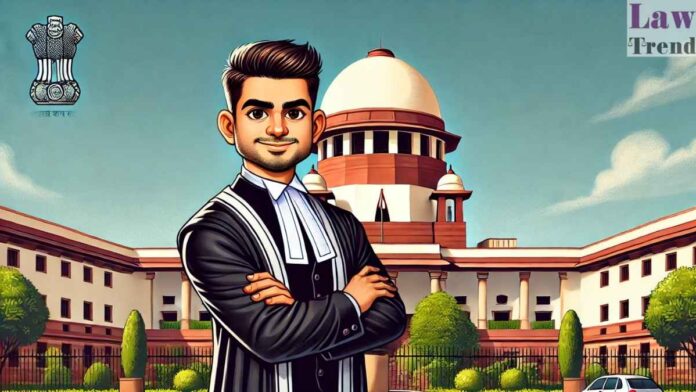The Supreme Court on Friday expressed concern over a growing reluctance among young lawyers to engage with trial court proceedings, observing that many are bypassing crucial foundational practice in lower courts.
The remark came during the hearing of a parole plea in the matter titled Ajay Kumar v. State of Uttar Pradesh. A Bench of Justice SVN Bhatti and Justice Prasanna B Varale was hearing a petition filed on behalf of a convict serving a 10-year sentence under the Protection of Children from Sexual Offences (POCSO) Act. The petitioner’s appeal against conviction is currently pending before the Allahabad High Court.
The petitioner had approached the apex court after the High Court rejected his second plea for parole. His counsel submitted that although the High Court had previously granted a 45-day parole in September 2024 for his wife’s surgery, the procedure could not be performed then due to her low haemoglobin levels. The surgery is now scheduled for June 16, 2025. The counsel also submitted that the convict’s presence was required to care for his children during the postoperative period.
Despite acknowledging the urgent circumstances, the Supreme Court pointed out that the petitioner had not followed the proper legal procedure. It stated, “The normal procedure is to first apply before the authorities, convince them of the pressing reason, and obtain parole.” The Court also noted that the petitioner’s lawyer had failed to notify the State counsel in advance.
While ultimately granting parole for a limited period — from June 15 to June 21 — the Bench made it clear that the concession was extended due to the specific facts on record, not because due process had been followed. When the petitioner’s lawyer sought a two-week parole instead of just one, Justice Bhatti remarked that the parole was granted only due to the insistence of his fellow judge.
In an exchange that led to broader judicial reflection, Justice Bhatti orally observed, “The whole trouble with this generation is that they don’t want to go to the trial court to learn the practice.” The remark came as the Court had to explain procedural clarity to the young counsel, particularly regarding the option to apply for an extension of parole before the concerned authority.
The Court clarified that the petitioner may approach the relevant authorities during the granted parole period to seek an extension, and if needed, return to the Court thereafter. “That is why the case is listed after the 25th. You can submit an appropriate application before the authorities, and then approach this Court to dispose of the application. We should have told you that as well,” Justice Bhatti added.
The matter will now be taken up for further hearing after June 25, with liberty granted to the petitioner to follow due procedure for any further relief.




